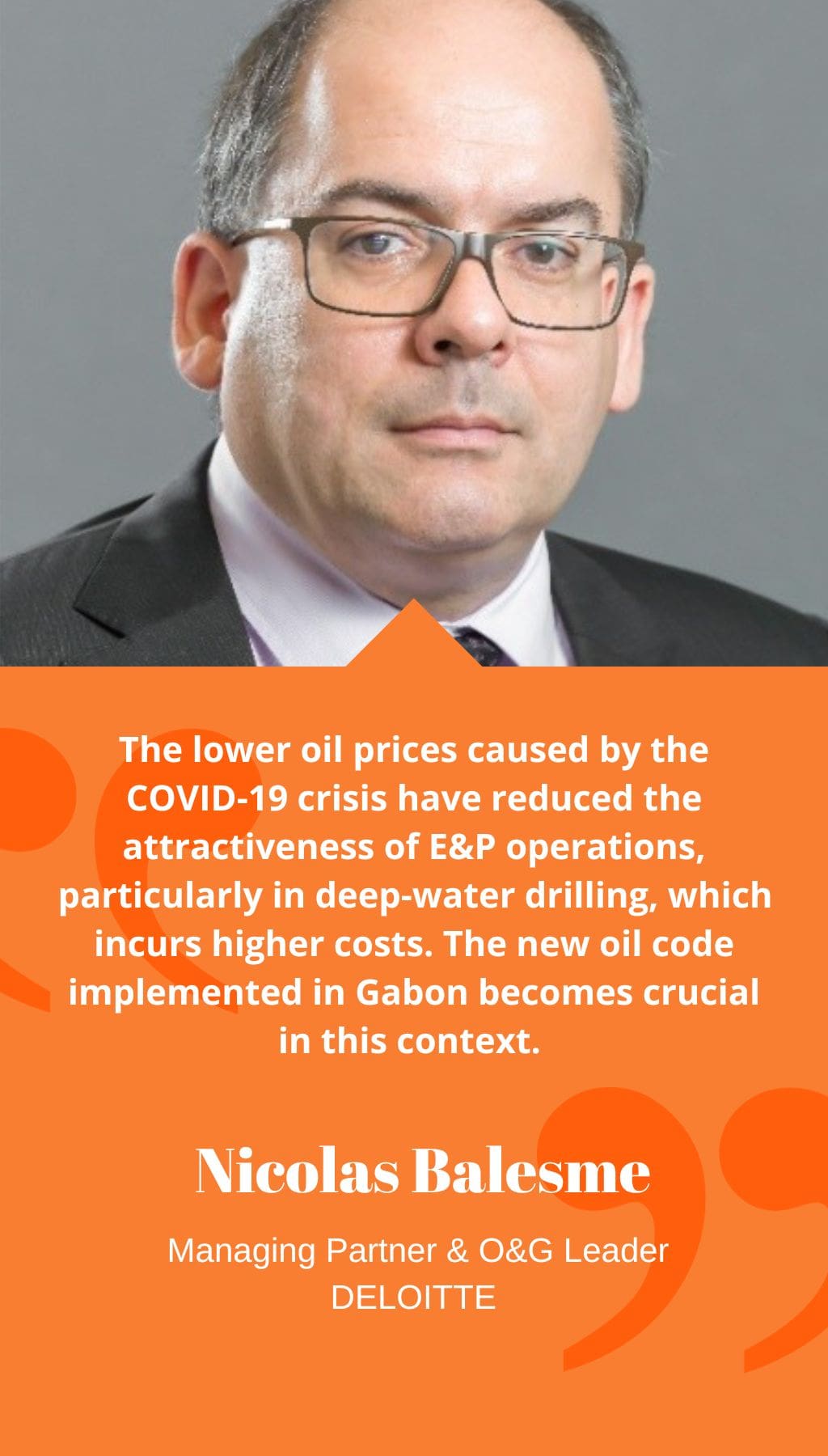
- Gabon | 23 May 2019

Could you provide us with an overview of Deloitte’s operations in Gabon?
Deloitte Gabon is part of the Deloitte Francophone Africa cluster, with two offices located in Libreville and Port Gentil. We have a team of over 100 professionals who offer comprehensive support in various areas such as audit, consulting, financial services, risk advisory, accounting, business process services, tax, and legal services. Deloitte Gabon serves as the central hub for our regional platform in Central Africa. We have also established offices in Equatorial Guinea (Malabo-2005), Congo-Brazzaville (Pointe-Noire – 2007), and Chad (N’Djamena – 2014) as part of our direct investments.
How has the oil price crisis impacted competition among exploration and production (E&P) players in Gabon?
The sharp decline in oil prices had a significant impact on the E&P sector globally, and Gabon was no exception. Shell, after operating in the country for 50 years, sold its onshore assets to Assala Energy. CNOOC International has also acquired agreements to become the sole owner and operator of the BC9 and BCD10 licenses. The landscape of major producers has changed considerably, with Total selling some mature assets to Perenco in 2017. Perenco has now become the largest producer, followed by Assala and Total. However, drilling activities in offshore and deep offshore areas have been stagnant for the past three to four years. The crisis has also affected the government’s efforts to promote the Gabonese sedimentary basin, leading to the postponement of the 12th bidding round for oil block allocation due to challenges related to the COVID-19 pandemic and local containment measures.
What are the prospects for the Gabonese oil industry in the future?
The lower oil prices caused by the COVID-19 crisis have reduced the attractiveness of E&P operations, particularly in deep-water drilling, which incurs higher costs. The new oil code implemented in Gabon becomes crucial in this context. The results of the 12th bidding round will serve as an indicator of Gabon’s attractiveness compared to other countries in the region vying for oil and gas tenders. While the government aims to diversify the economy into mining, forestry, and agriculture, the oil industry will remain the primary economic contributor in the foreseeable future. Positive prospects for the industry depend on three factors: the attractiveness of the regulatory framework, particularly with the new hydrocarbons code; the exploration of deep-water and pre-salt offshore deposits; and the promotion of local content to generate value for the population.
What benefits does the new oil code bring to potential investors?
Compared to the previous legislation, the new hydrocarbons code represents a positive evolution, improving licensing and fiscal terms for oil and gas companies. The government’s ownership threshold in discoveries has been reduced from 20% to 15% carried interest. Royalty rates range from 7% to 15% for oil and 5% to 10% for gas in conventional offshore areas, with even lower rates in ultra-deep offshore. Profit sharing from oil stands at 45% in conventional zones (40% in deep-water and ultra-deep-water zones), and it now includes the corporate income tax paid by the contractor, fulfilling the contractor’s tax obligations to the state.
How is Deloitte assisting its private and institutional clients in navigating regulatory challenges in Gabon?
Leveraging our deep understanding of the oil and gas industry, Deloitte provides tailored solutions to our clients across the value chain, helping them seize opportunities and manage challenges. Through our consultancy and risk advisory services, Deloitte Consulting enables companies to build value by adopting a risk-intelligent approach. Our legal and tax services offer specialized advisory tailored to local regulations. We also assist clients with fraud detection, forensic investigations, litigations, and reorganizations through our financial advisory arm. Moreover, we support strategic investments, mergers and acquisitions, divestments, capital planning, due diligence, and vendor assistance. Additionally, our Business Process Services (BPS) arm provides outsourcing services for accounting, financial reporting, payroll, and tax compliance. The comprehensive range of professional services we offer is backed by the extensive global network of Deloitte.














